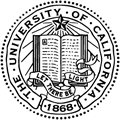ARCHAEOTEK
Bio/Archaeological Techniques and Research Center

We are continuing to make great strides into a new understanding of the development of the Roman frontier populations. Dacia (i.e. modern historical Transylvania) was, arguably, the most important frontier of the Roman Empire: its gold and silver sustained the collapsing imperial economy for two centuries. However, the “imperial idea” on the Eastern European Provincial frontier was more complex than Rome ever expected it… and it even outlasted the idea of Rome itself. Local Roman Provincial realities, born out of economic, cultural, social and political creolization, constant and dynamic negotiation of power, and shifting populations, have outlived the ideological centers that have claimed historical ownership of these regions, creating their own distinct expressions of identity.
Our programs offer a very extensive approach to the anthropology and archaeology of the Roman frontier environments, through field work, laboratory analysis and lectures. Our participants will be able to experience several field approaches, ranging from Classical excavation, anthropological site exploration, traditional STP (shovel test pit), geochemical (phosphate analysis) and geophysical (GPR) survey. Our programs provide an anthropological and scientifically integrated approach to a Classical site, in a very complex environment, in a region fundamentally important to our understanding of European genesis.
Our field archaeological and geophysical programs:
Roman Villa And Settlement Excavation and Survey – Identity and Wealth on the Roman Frontier
Location: Rapolt, Hunedoara County, Transylvania – Romania
Dates:
Session 1: June 9 – June 29, 2019
Session 2: June 30 – July 20, 2019
Session 3: July 21 – August 10, 2019
Team Size: 12-15 participants per session
E-mail: archaeology@archaeotek.org
Description: The integrated results of our various field techniques have yielded extraordinary results: a rural built space of almost one hectare, with massive fortification walls decorated with exterior frescoes, richly built two stories buildings, containing exceptional artifacts (well preserved bronze statues, jewelry, pristine condition coins, writing implements, etc.). Our target excavation, the central building of the “villa” has already presented us with a very complex and surprising occupation sequence and practices. We will continue to explore the way identity is built and negotiated in a very dynamic and rich frontier environment, as well as the development of a “creole” Roman landscape.
Cost: US$ 1395 per session ( includes program fees, lectures, equipment, room and board – see flyer for details; ; not included: travel to and from Rapolt, medical insurance) ).
Web Site: https://www.archaeotek-archaeology.org/roman-villa-excavation
Application Form: https://www.archaeotek-archaeology.org/application-excavation-and-gpr
Applied Field Geophysics Workshop – Ground-Penetrating Radar (GPR) Applications
Location: Southern Transylvania (Deva region, Hunedoara County), Romania
Workshop Dates:
Session 1: May 26 – June 2, 2019
Session 2: June 2 – June 9, 2019
Session 3: June 9 – June 16, 2019
Session 2: June 16 – June 23, 2019
Session 2: June 23 – June 30, 2019
Team Size: 3 participants
E-mail: archaeology@archaeotek.org
Description: The workshop is designed as an intensive 6-day laboratory and field school in all aspects of ground penetrating radar investigation, from theoretical principles to survey design, field preparation, data collection, in depth analysis, report writing, and podium presentation. Our participants, in 2-3 person teams, will learn the theory and methods involved in GPR exploration in various environments. Our participants will explore a very complex archaeological environment, conducting original research, in a multilayered, target rich environment, ranging in human occupation from pre-Roman to modern periods. They will learn how to manipulate, optimize and analyze in-depth the data collected using SenSoft’s EKKO Project GPR analytical software package, in order to generate professional reports as well as present the research and its results in a scientific manner, in a podium presentation.
Program Fee: US$1085 per session (it includes full room and board as described on the project web page, lectures, training, all field gear, access to analytical software, local transportation to the sites when needed; not included: travel to and from Romania, medical insurance)
Web Site: https://www.archaeotek-archaeology.org/gpr-exploration
Application Form: https://www.archaeotek-archaeology.org/application-excavation-and-gpr
Our programs are available for both credit students and non-credit participants.










